Was 'Wednesday' a Hit or a Miss?
It seemed like a match made in gothic heaven. Tim Burton was going to helm an Addam's Family reboot, told from the perspective of an adolescent Wednesday Addams. Nothing could be more perfect. The director has always been known for his dark imagery.
He knew the look. He had source material going back decades, and there was a massive fanbase. All he had to do was put his own spin on things--do what he does best, and whatever he churned out was bound to be a hit.
Within 3 weeks of its November 23 premiere on Netflix, 'Wednesday' was the second most-watched English language series on the streaming platform. Everything it touched turned to gold. It's spawned a viral TikTok dance challenge, which included Kim Kardashian and Lady Gaga, and nobody can stop talking about Jenny Ortega, the lead actress. She seemed to have mastered Wednesday's unique brand of humor.
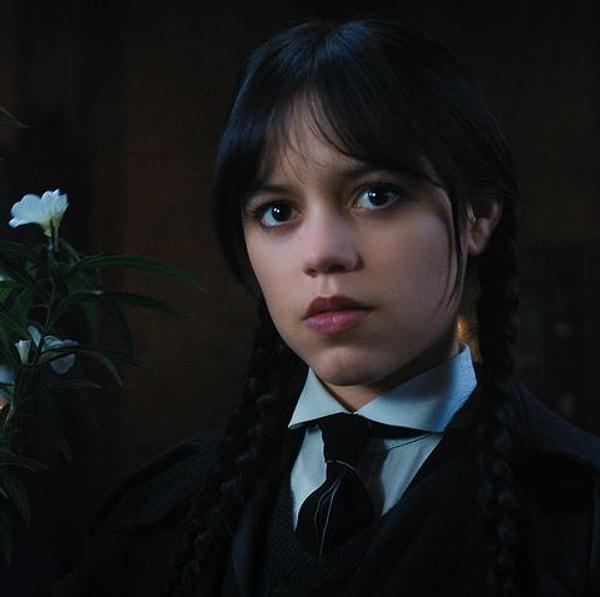
Courtesy of Netflix
In April, the streaming industry came undone when Netflix announced its first loss in subscribers in more than a decade. The stock plummeted. The company lost billions. Hundreds of workers were laid off. The platform's viability hung in the balance, and if it could happen to Netflix--one of the oldest and most reliable companies in the industry--then it could happen to anyone. Nobody was about to fund anything unless they had a guaranteed return on their investment--a concern investors had already started to voice--which is why reboots have become so popular. They come with a core group of fans, and they've been tested on the market, giving them a verifiable track record of sales.
Find the right franchise, do it right, and you have a hit. But reviving the dead isn't an exact science. Every hit has to tap into a relevant, cultural vein. People have to be hungry for it in some way, even if it is based on old source material. That was exactly what happened when Melissa Hunter created her web series, 'Adult Wednesday Addams.'
Wednesday was a young 20-something, going about her life in LA. She went job and house hunting. She went on an internet date and had a one-night stand, who found himself chained to the floor when he woke up. It was witty and well-written, definitely low-budget, but it was professional cinematic quality. Hunter had already been credited with writing for major Hollywood projects in the past. Most recently she wrote an episode of 'She-Hulk: Attorney at Law.'
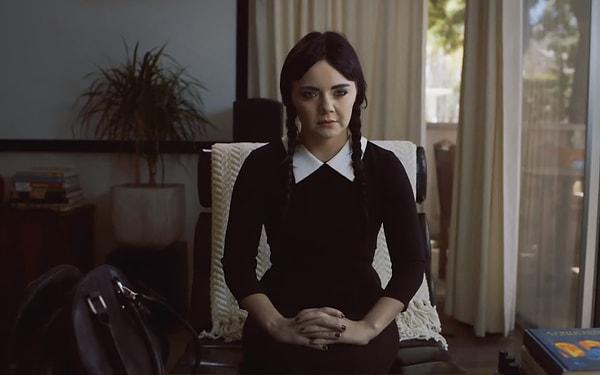
Courtesy of Melissa Hunter via Adult Wednesday Addams
'Adult Wednesday Addams' was Melissa Hunter's love child. She built the fanbase organically, and she succeeded. She was even able to get enough crowdfunding to pay for a second season of the series. She would've continued working on the project, but it started to get so big that it gained the attention of the Tee & Charles Addams Foundation, who owned the copyrights to the franchise.
They sent her a cease and desist order, telling her to take the videos down. When she spoke to Buzzfeed about what happened, she said that she thought the series qualified under Fair Use, and it does. But continuing to post videos would have left her vulnerable to further legal action. In other words, she was scared off by a team of attorneys.
It was obvious to many that Hunter had struck gold, but the copyright owners were not about to short-change themselves and hand the contract over to some small, nighttime sitcom writer. They turned down her petition to create her own series, and opted instead for big names, like Tim Burton and Catherine Zeta-Jones. They shaved a few years off of Wednesday's life, putting her in a more lucrative demographic, and built a plot around their newfound premise.
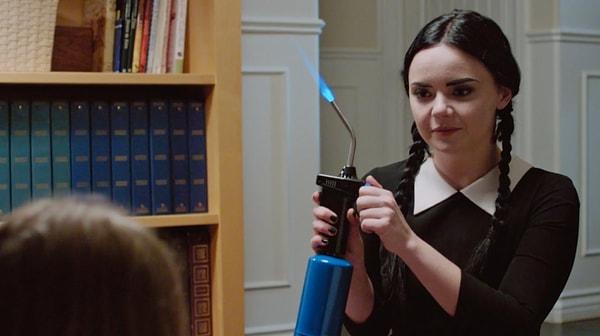
Courtesy of Melissa Hunter via Adult Wednesday Addams
How Wednesday Came to Be
Many rolled their eyes when 'Adult Wednesday Addams' was taken down. Some said the Tee & Charles Addams Foundation would do what all large enterprises do: sue the creator and steal her idea. We were bound to see a more grown-up Wednesday onscreen very soon, and we did.
But Hollywood has long recognized the franchise's potential, and adult Wednesday was just one of many ideas that had been thrown out there. When Tim Burton was first called to work on the project, he was working on a stop-motion reboot, which has since been canceled.
We know very little about the decision-making process behind the scenes. Perhaps someone at the top suggested they turn Wednesday into a teenager--or maybe they used focus groups, testing ideas like Wednesday the Witch, or Wednesday in college, until ultimately landing on teenage Wednesday.
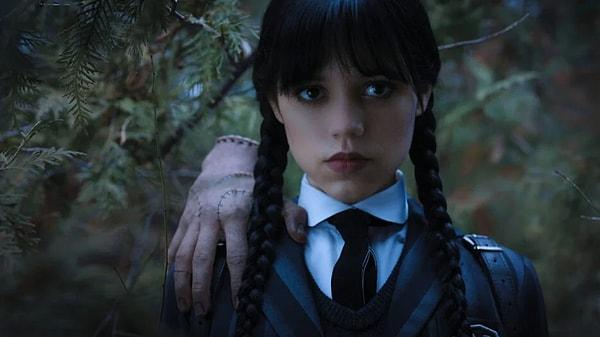
Courtesy of Netflix
Once the age range had been determined, everything could be built around it. Writers will often compile lists of categories like genres, settings, and themes. They'll try out different combinations from the list until they get the right one. Some people in publishing actually abbreviate their chosen category using various notation methods. Wednesday was a young adult, supernatural mystery with a love triangle--or a 'ya/s/m/lt.'
Studios often use focus groups to come up with the right formula. They may have tested different combinations on sample audiences until they found one that people liked--or maybe someone at the top felt like they knew the demographic well enough to fill in the blanks themselves.
Each category would come with its own list--things like plot points and worldbuilding details. For example, academy settings like Nevermore often have students sectioned off into houses. Writers could choose how many, what their colors were, and their general disposition. There's an entire branch of psychology behind those choices. It could determine how readers relate to their peers, and thereby the fictional society as a whole, or it could set the tone for a relationship. Every decision would've been weighed heavily and likely tested with a sample audience, extending their abbreviation until they had a full storyline.
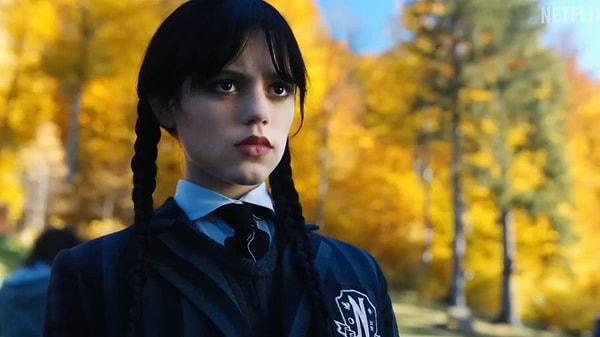
Courtesy of Netflix
The Right Formula
The marketing team did everything right. They promoted the series with mailing lists, interviews, and controversy on social media. By the time it hit Netflix, people had already been arguing about it and researching it for weeks, making it one of the platform's most successful premieres.
The result was formulaic. It relied heavily on Wednesday's characteristic deadpan humor, which fell flat. Without it, you were left with nothing more than a basic teen drama--a girl in an elite academy torn between two boys. It offered nothing special, nothing new, just items chosen off of a list.
On paper, it must've looked fantastic; on camera, it was a total flop. It felt contrived like someone had thrown it together at the last minute. There was no Tim Burton magic, nothing particularly macabre or visually appealing. It didn't have his fingerprint on it at all. But for some reason, the masses are lapping it up. They're loving every second of it. Facebook has been plastered with memes. Merch is flying off the shelves, and 'Wednesday' is all anyone can talk about.
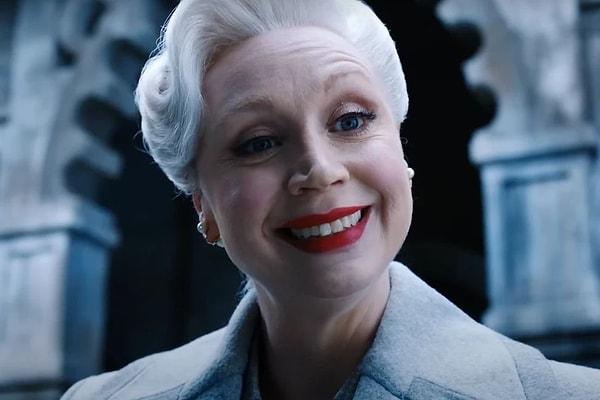
Courtesy of Netflix
The show's success has absolutely nothing to do with its quality. It was promoted by the best in Hollywood. They know what it takes to get people to click on something, and while the franchise might've skimped on writers and computer graphic designers, they most certainly did not skimp when it came to marketing.
Without that machine, the show would've been seen for what it was: a complete failure that barely lives up to professional standards. It's a sign of an industry that has lost its heart. The people who made the series didn't care about entertainment value or quality. They weren't artists. They set all of those things aside in pursuit of a paycheck.
Keşfet ile ziyaret ettiğin tüm kategorileri tek akışta gör!

Send Comment